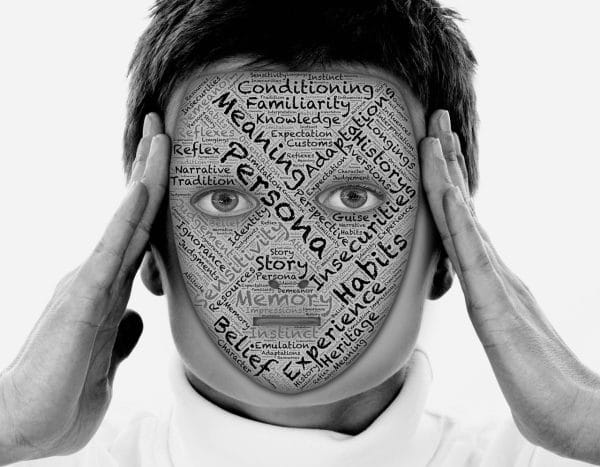The Sense of Identity: How We Define Ourselves and Our Place in the World
The concept of a “sense of identity” is a fundamental aspect of human psychology and a cornerstone of how we understand ourselves and our place in the world. It encompasses our beliefs, characteristics, and expressions that define who we are as individuals. In this article, we will delve into what identity is, its meaning, and how it can be cultivated, especially in children.

What is an Identity?
![]()
An identity is essentially the definition of who a person is. It is a combination of traits, attributes, roles, and values that an individual identifies with and presents to others. While some aspects of identity such as race, gender, and heritage are ascribed at birth, others are developed through personal experiences, choices, and social interactions.
The Sense of Identity Meaning
![]()
The meaning of a sense of identity refers to how individuals perceive themselves and how they believe others perceive them. It is a self-constructed concept that is continuously evolving as people grow and encounter new experiences. This sense of identity influences every aspect of life, from decision-making and relationships to personal goals and self-esteem.
Sense of Identity Examples
![]()
A sense of identity refers to how a person sees themselves, which is often shaped by their experiences, beliefs, values, and relationships. Here are some examples that illustrate what a sense of identity might look like in everyday life:
1. Cultural Identity: Maria feels a strong connection to her Mexican heritage. She takes pride in her family’s traditions, speaks Spanish fluently, and celebrates festivals like Día de los Muertos. Her cultural background is a significant part of who she is.
2. Professional Identity: John is a teacher and sees himself primarily through his profession. He is deeply committed to educating young minds and views his work as a teacher as central to his identity.
3. Gender Identity: Alex identifies as non-binary and prefers they/them pronouns. They feel most comfortable expressing themselves through clothing and behaviors that don’t fit traditional gender norms.
4. Religious Identity: Fatima is a devout Muslim. Her faith guides her daily actions, and she finds a sense of community and belonging through her religious practices and the mosque she attends.
5. Social Identity: Emma is an environmental activist. She sees herself as part of a larger movement working towards sustainability and environmental protection, which influences her choices, from what she buys to how she votes.
6. Personal Interests and Hobbies: Rahul is an avid gamer and considers the gaming community an essential part of his identity. He spends a lot of his free time playing, discussing, and creating content about games.
7. National Identity: Sophia was born and raised in Canada and feels a strong sense of being Canadian. She celebrates Canada Day with enthusiasm and closely follows Canadian politics and hockey.
8. Sexual Identity: David is openly gay and feels that his sexual orientation is an integral part of who he is. He is active in LGBTQ+ advocacy and seeks to create a more inclusive society.
9. Disability Identity: Helen has a hearing impairment and is actively involved in the Deaf community. She embraces sign language as her primary means of communication and advocates for the rights of people with disabilities.
10. Family Role: As a parent, Thomas’s identity is closely tied to being a father. He prioritizes spending time with his children and making decisions that will benefit his family’s well-being.
Each of these examples shows how individuals can define themselves in different ways based on various aspects of their lives. A sense of identity can be complex and multi-faceted, with different elements becoming more prominent depending on the context or stage of life.
Identity in Psychology
![]()
In psychology, identity is recognized as a complex and multi-faceted construct. Psychologists have long studied how identities are formed, how they change, and their impact on mental health. Erik Erikson, a notable figure in psychology, introduced the concept of identity crisis, which is a period of uncertainty and confusion in which a person’s sense of identity becomes insecure, typically due to a change in their expected aims or role in society.
Identity formation is seen as a crucial part of adolescent development but continues to evolve throughout an individual’s life. It involves the integration of various aspects of the self, including personal values, social roles, and cultural affiliations.
How to Help Your Child Develop a Sense of Identity
![]()
Helping a child develop a strong sense of identity is an essential part of parenting. It lays the foundation for their self-esteem, resilience, and ability to navigate the complexities of life. Here are some strategies parents can use:
- Encourage Exploration: Give children the opportunity to try new things and explore various interests. This exploration allows them to discover what they enjoy and what is important to them.
- Provide a Supportive Environment: Create a home environment where children feel safe and accepted for who they are. Support from family can boost their confidence to express themselves and develop their identity.
- Teach Values: Instill a sense of right and wrong, and help children understand the values that are important to your family and community.
- Encourage Self-Reflection: Teach children to reflect on their actions, thoughts, and feelings. This self-reflection helps them understand their own identity more deeply.
- Model Healthy Identity Characteristics: Be a role model by showing a secure and positive sense of your own identity. Children learn a lot by observing their parents.
- Allow for Autonomy: Give children the chance to make choices and have a say in matters that concern them. This autonomy helps them build a sense of agency and self-efficacy.
- Recognize Their Individuality: Acknowledge and celebrate your child’s unique qualities and strengths. This recognition helps them appreciate their individuality and develop a personal identity.
Case Studies and Statistics Supporting Identity Development
![]()
Research in psychology supports the importance of a strong sense of identity in overall well-being. A study published in the Journal of Youth and Adolescence found that adolescents with a clear sense of identity exhibited higher levels of happiness and less psychological distress. Additionally, the American Psychological Association highlights that identity stability in early adulthood is linked to better mental health outcomes.
Case studies further demonstrate the impact of identity development on personal growth. For example, longitudinal studies following children into adulthood show that those with a well-defined sense of self are more likely to succeed in their careers and maintain healthy relationships.
Frequently Asked Questions
![]()
What is a sense of identity?
A sense of identity is how you see and define yourself. It includes your beliefs, values, and the way you feel about your own character, strengths, and weaknesses. It’s shaped by your experiences, relationships, culture, and even your hobbies and interests.
Why is having a sense of identity important?
Having a strong sense of identity is important because it helps you make decisions and guides how you interact with the world. It gives you a sense of purpose and belonging, and can contribute to your overall well-being and happiness.
Can your sense of identity change?
Yes, your sense of identity can change over time. New experiences, relationships, and knowledge can all influence your sense of who you are. It’s normal for your identity to evolve as you grow and learn.
How does culture affect your sense of identity?
Culture can have a big impact on your sense of identity. It can shape your values, beliefs, traditions, and behaviors. Being part of a cultural group can give you a sense of community and shared history that is a part of who you are.
What is an identity crisis?
An identity crisis is when you’re unsure about who you are or your place in the world. This can happen after a big change or life event, like starting a new job or going to college. It can make you question your values, beliefs, and choices.
How can I develop a stronger sense of identity?
Developing a stronger sense of identity involves self-reflection and being open to learning about yourself. It can include exploring your interests, values, and beliefs, trying new things, building relationships, and seeking feedback from others.
Is my identity shaped by my relationships with others?
Yes, your relationships with family, friends, and others can shape your identity. They can influence your views, self-esteem, and even the goals you set for yourself. Positive relationships can help build a strong sense of who you are.
Can social media affect my sense of identity?
Social media can affect your sense of identity in both positive and negative ways. It can expose you to new ideas and people, but it can also create pressure to present yourself in a certain way. It’s important to be mindful of how social media makes you feel about your identity.
What’s the difference between personal identity and social identity?
Personal identity is about your individual characteristics, like your thoughts, feelings, and choices. Social identity is about the groups you belong to, like your nationality, race, religion, or any group that you feel a part of. Both make up who you are.
How do I know if I have a healthy sense of identity?
If you have a healthy sense of identity, you generally feel confident in who you are and are comfortable with your beliefs and values. You’re also open to learning and growing, and you can cope with changes in your life without losing a sense of your own identity.
Conclusion: The Importance of a Strong Sense of Identity
![]()
In summary, a sense of identity is a vital component of human psychology that influences virtually every aspect of our lives. It is not a static concept but rather an evolving narrative that each individual crafts throughout their life. Developing a strong sense of identity is particularly crucial during childhood and adolescence, as it lays the groundwork for future mental health and success.
Parents play a critical role in nurturing their child’s sense of identity by providing opportunities for exploration, a supportive environment, and guidance on values and self-reflection. By understanding the importance of identity and the various factors that contribute to it, individuals and parents alike can work towards fostering a robust and healthy sense of self.
Identity is not merely about how we see ourselves but also about finding our place in the world and connecting with others. As we navigate through different stages of life, our sense of identity guides us, providing a framework for understanding our experiences and shaping our future path.




